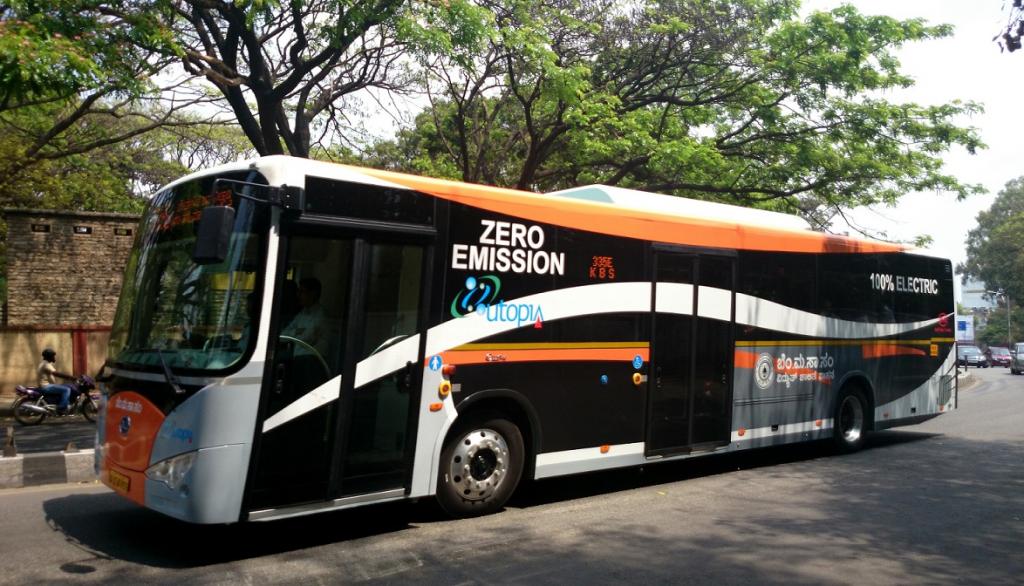

According to EPCA, the government has not done sufficient work to detail out the proposal for induction of 1,000 e-buses and their necessary infrastructure



The Delhi government has not done sufficient work in detailing out the proposal for induction of 1000 low-floor fully electric buses and its necessary infrastructure to mitigate air pollution, the Environment Pollution Control Authority (EPCA) has made this observation recently after evaluating the interlocutory application (IA) filed by the government regarding utilisation of funds deposited under the Environment Compensation Charge (ECC).
On May 14, the EPCA convened an urgent meeting to discuss the proposal and concluded that it is not in a position to recommend that the Supreme Court should clear the proposal as given in the IA of the Delhi government because of reasons more than one.
Technology challenges for induction of electric buses
It emerged from the meeting that the initial technology challenge emerges from the type of battery charging infrastructure that will be provided. It appeared that the Delhi government did not consider the fact that the charging infrastructure, in most cases, has to be pre-designed for the bus infrastructure and it is specific to the type of bus inducted. The government has to decide whether it wants fast or slow charging systems much before the procurement is made.
Technology challenge also emerges when it comes to the type of bus to be inducted and its specifications. Currently, Central Motor Vehicle Rules (CMVR) provides specifications for electric buses. But experts are of the opinion that these rules are lacking in terms of engine and battery technology. There is a concern that companies will bring outdated technologies into India without clear specifications on these critical issues.
Not-so-impressive track record on fund utilisation for bus procurement
On reviewing the past budgets of the Delhi government (as available on the website), EPCA found that over the years, funds have been allocated for transport department, which included procurement of buses in the GNCTD budget (see Table). However, fleet augmentation did not happen.

Therefore, it can be assumed that the allocated and earmarked funds for bus procurement lapsed at the end of the budget year. According to the IA that the government had filed, the total funds deposited under ECC as of April 12, 2018 is Rs 999.25 crore.
EPCA’s observations
The EPCA notes that the experience of e-buses in the entire country is limited and the transition to e-vehicles has only just begun. “Therefore, to be ambitious and bold requires more detailing so that the chance of success is improved,” reads the EPCA’s report on findings.
It also noted that Delhi government’s past track record of inducting conventional CNG buses (from 2000 onwards) has been lacking. Therefore, providing better design and detail for this project is now even more imperative. After deliberating on the proposal and identifying issues, EPCA demanded that Delhi government must provide information about the availability of such buses, their specifications, and infrastructure requirements and technology.
Over the past few years, the government has not inducted significant numbers of buses. Even now, there is uncertainty over whether the tenders floated for DTC bus fleet will fructify. “In this scenario, every effort must be made to ensure that there is sufficient detailing so that the chances of success increase or are guaranteed,” EPCA concludes.
Delhi is in dire need of buses. It has about 50 per cent deficit in required numbers. Introduction of e-buses will be a significant step after CNG buses in Delhi, but government needs to prepare a better plan for procurement and deployment covering all necessary details of financial, operational, and technological aspects because it is going to be an expensive project and with a large order. Therefore, better returns must be gained with this investment.
We are a voice to you; you have been a support to us. Together we build journalism that is independent, credible and fearless. You can further help us by making a donation. This will mean a lot for our ability to bring you news, perspectives and analysis from the ground so that we can make change together.

Comments are moderated and will be published only after the site moderator’s approval. Please use a genuine email ID and provide your name. Selected comments may also be used in the ‘Letters’ section of the Down To Earth print edition.